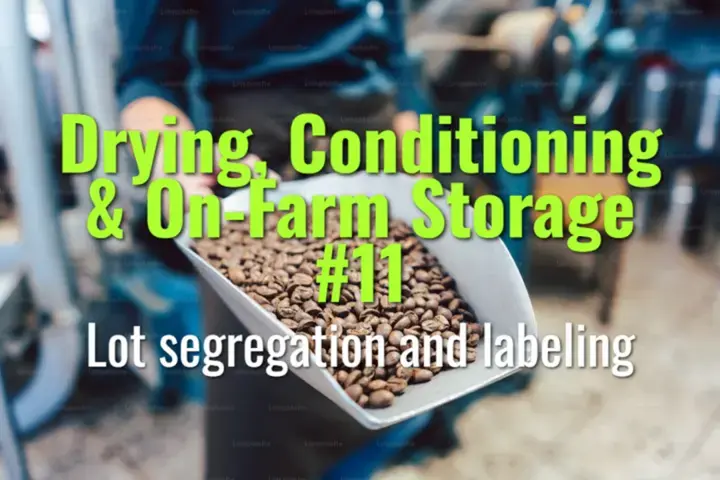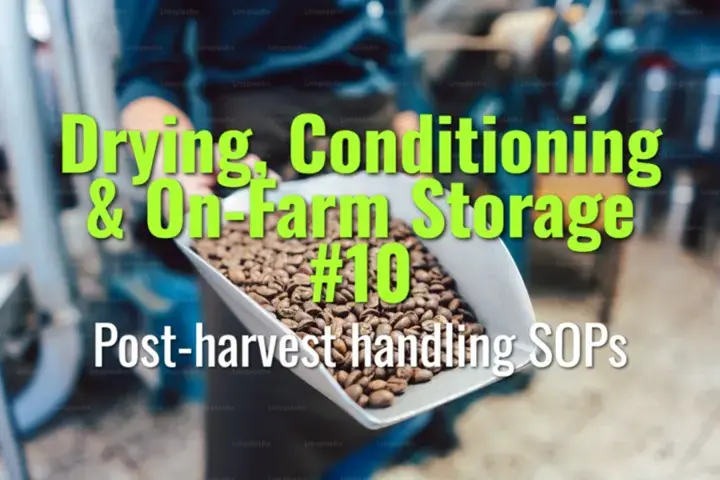
Process traceability and claims
Why transparency in decaffeination processes matters, how traceability is ensured, and what claims roasters should communicate responsibly.

Why transparency in decaffeination processes matters, how traceability is ensured, and what claims roasters should communicate responsibly.

This topic explains how traceability and lot coding work in coffee milling, why they are essential for quality assurance, and how they support transparency and trust in specialty markets.

This topic explains how lot segregation and labeling are managed in coffee drying and storage, why they are essential for traceability, and how they impact quality consistency and market value.

This topic explains the role of Standard Operating Procedures (SOPs) in post-harvest handling of coffee, outlining best practices for consistency, quality control, and traceability.

This topic explains how different honey and pulped natural processes influence the flavor and body of coffee, highlighting the spectrum from clean and bright to sweet and syrupy.

This topic explains the color-coded honey process variants—white, yellow, red, and black—how they differ in mucilage retention and drying practices, and how these differences influence flavor outcomes.